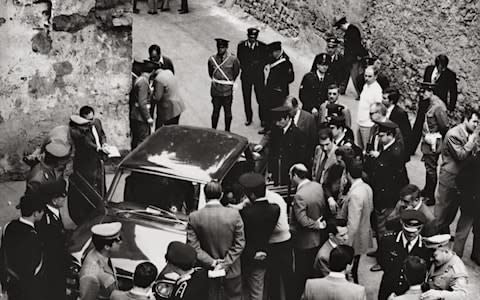19th century Sicilian puppet shows dragged young men into crime, claims history author

Sicilian puppet shows in the 19th century dragged young men into crime like video games do today, an award-winning author has claimed.
Speaking at the Chalke Valley History Festival near Salisbury, Nicholas Jubber said that puppet operas depicting the violent crusades of the Knights of Charlamagne resonated with local youth in European cities.
Criminologists drew a “direct link” between the traditional ‘pupi’ theatre shows, which would glorify Christian Knights fighting against Arab muslims, and increased crime rates in Sicily.
Experts warned that these “exciting visions of the past” had a particularly “detrimental effect” on young men from poorer communities, who were more likely to enlist in the army to re-enact scenes from the plays.
Mr Jubber, 41, said that modern video games featuring heroic lead characters appeal to this same sense of adventure through their “epic storytelling”.
In his new book, Epic Continent: Adventures in the Great Stories of Europe published earlier this month, he writes: “Swap the ‘young urchins’ of nineteenth-century Palermo for disaffected youths on any modern sink estate, swap the tales of Roland and the Paladins for the latest gangster drama on Netflix: it is the same old problem, and it is epic storytelling that kicked it off.”

The author, who won the Dolman Travel Book award in 2006 for ‘The Prester Quest’, added that fictional tales still inspire disenfranchised youth to commit violence.
But he stressed that much is dependent on the personal circumstances of those involved.
He told The Daily Telegraph: “Epic tales are incredibly exciting and powerful but they can also be dangerous. This is why Socrates voiced concerns about the Homeric epics back in ancient Greece and Sicilian sociologists worried about the effect of the puppet operas about the Knights of Charlamagne. For most people these stories are entertaining, exciting visions of the past, but for some they become much more influential- inspiring them to violent deeds.”
“There is certainly a loose connection between the epic tradition and storytelling that glorifies violence. It is less prevalent on TV but more so on computer games- those with epic stories of warriors doing lots of violent deeds.”

 Yahoo News
Yahoo News 
